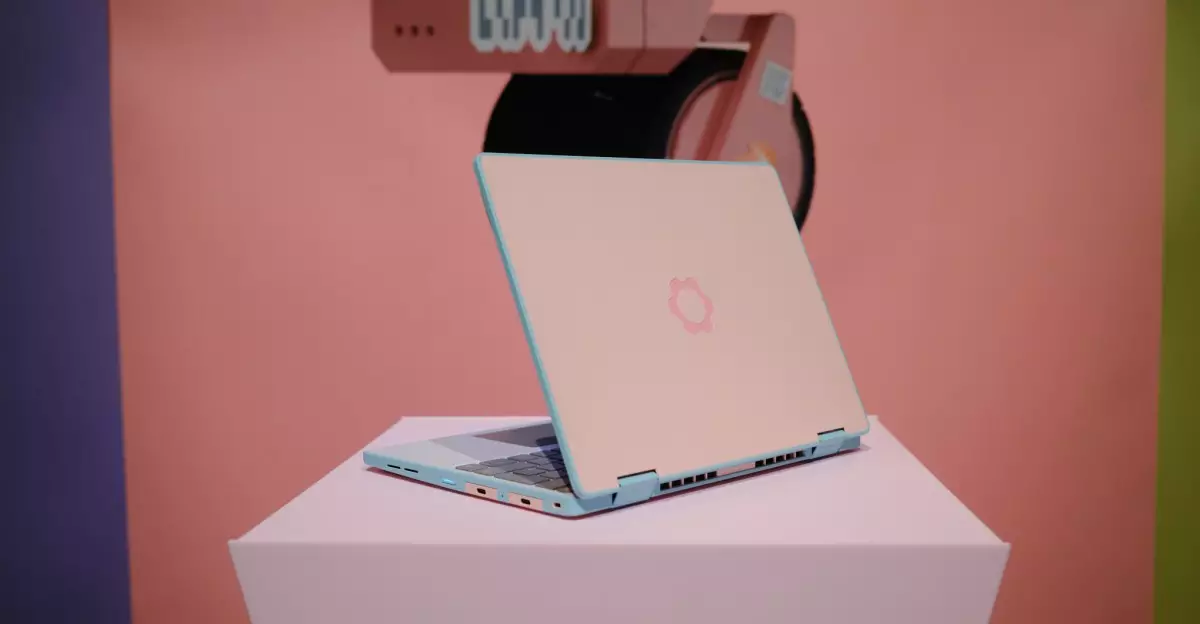In an era marked by unprecedented economic challenges, tech companies are navigating turbulent waters with varied strategies. Recently, Framework embarked on a significant maneuver: pausing U.S. sales of its cheaper Laptop 13 models while concurrently introducing the highly anticipated Laptop 12. This decision reflects a company willing to adapt as it faces the repercussions of Trump’s tariffs, showcasing a blend of resilience and foresight that many other tech firms might learn from.
The Laptop 12: A Game-Changer
The Laptop 12 by Framework embodies innovation tailored for users seeking an affordable yet powerful device. This model stands out not only for its compact size but also for its unique modularity. With a design that allows customization and easy repairs, it caters to the environmentally conscious consumer. This transformative approach to laptop design is both a practical and philosophical statement, giving power back to the user while also reducing electronic waste.
Equipped with a state-of-the-art 13th Gen Intel Core i3 or i5 processor and boasting features such as a vibrant 1920×1200 touchscreen, the Laptop 12 is aesthetically pleasing with its delightful pastel color options—pink and mint. This attention to design detail underscores Framework’s commitment to enhancing user experience. Furthermore, with a capacity of up to 48GB of RAM and generous 2TB storage options, it aligns well with contemporary demands for versatility in computing.
Strategic Pricing Amidst Tariff Turmoil
One of the most telling aspects of Framework’s announcement is its strategic approach to pricing, especially given that the Laptop 12 is pitched as an entry-level device. The timing of preorders for countries outside the U.S. indicates a calculated effort to minimize potential losses from tariffs currently imposed on products manufactured in Taiwan, which are indeed substantial. With a 32 percent tariff as a looming threat, it’s commendable that Framework is prioritizing financial sustainability while still striving to deliver value to its customers.
The decision to delay U.S. preorders until the company can reassess pricing strategies demonstrates an acute awareness of the market landscape. Rather than hurrying products to market, Framework thoughtfully evaluates its position, seeking to shield customers from inflated costs due to external economic pressures.
Future Outlook and Community Engagement
Social media discussions about Framework’s strategy indicate significant interest and support among consumers and critics alike. The company’s transparency regarding tariff impacts and its proactive communication reflect a level of integrity that is refreshing in today’s fast-paced tech market. As they angle to redefine computing with the Laptop 12, Framework emphasizes community engagement, which could foster loyalty and long-term support.
In a competitive landscape, where innovation often struggles against economic realities, Framework stands as a beacon of hope. Their adaptive strategies amid tariff complexities and their commitment to sustainable design are not merely business decisions; they’re a conscious move towards a more responsible and user-centric future in technology. By prioritizing dialogue around pricing and product availability, Framework is placing its consumer base at the forefront of its operations, setting a new standard for how tech companies might navigate similar challenges in the future.

